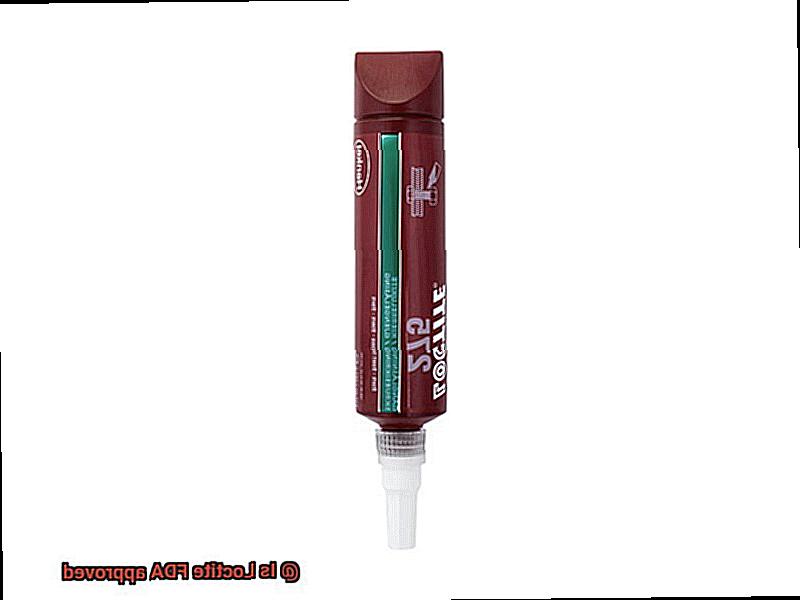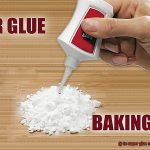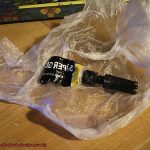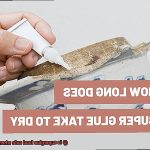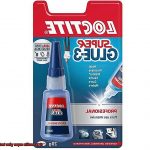Are you a DIY fanatic or someone who relies on adhesives for their job?
If that’s the case, you’ve probably stumbled upon Loctite, the adhesive brand that’s all the rage for its incredible strength and versatility. But here’s the million-dollar question: is Loctite FDA approved?
Now, this is a crucial inquiry, especially if you’re planning to use adhesives in food-related stuff or medical devices. In this blog post, we’ll take a deep dive into the world of Loctite adhesives and uncover whether they’ve got the official thumbs-up from the Food and Drug Administration (FDA).
It’s time to reveal if Loctite has managed to earn the trust of the FDA.
What is Loctite?
Contents
- 1 What is Loctite?
- 2 What is the FDA?
- 3 Does the FDA Approve or Certify Adhesives?
- 4 Are Any Loctite Products Safe for Indirect Food Contact?
- 5 Are There Food-Safe Loctite Products?
- 6 What are the Regulations for Materials that Come into Direct Contact with Food?
- 7 How to Choose an Adhesive Product for a Food-Related Application?
- 8 Industry-Specific Requirements for Adhesives Used in Processes
- 9 Conclusion
Loctite, a brand owned by Henkel, is a global leader in the adhesive market, offering a diverse range of products designed to provide strong and durable bonds in various industries. In this article, we will explore what sets Loctite apart, its different adhesive types, and its reputation for reliability.
Understanding Loctite:
Loctite is renowned for its commitment to innovation and high-quality solutions in the adhesive industry. Its adhesive products are widely used in automotive, aerospace, electronics, construction, and manufacturing sectors. As a trusted brand, Loctite has earned a reputation for providing reliable bonding and sealing solutions.
Types of Loctite Adhesives:
Loctite offers an extensive range of adhesives tailored to different bonding and sealing needs. Notable types include:
- Anaerobic adhesives: These adhesives cure without air and are ideal for creating strong bonds between metals.
- Cyanoacrylate adhesives: Also known as super glue, cyanoacrylates provide fast and strong bonds on various materials.
- Epoxy adhesives: Epoxy adhesives offer excellent strength and durability for bonding metals, plastics, ceramics, and more.
- Silicone adhesives: Silicone adhesives provide flexibility and resistance to extreme temperatures, making them suitable for sealing applications.
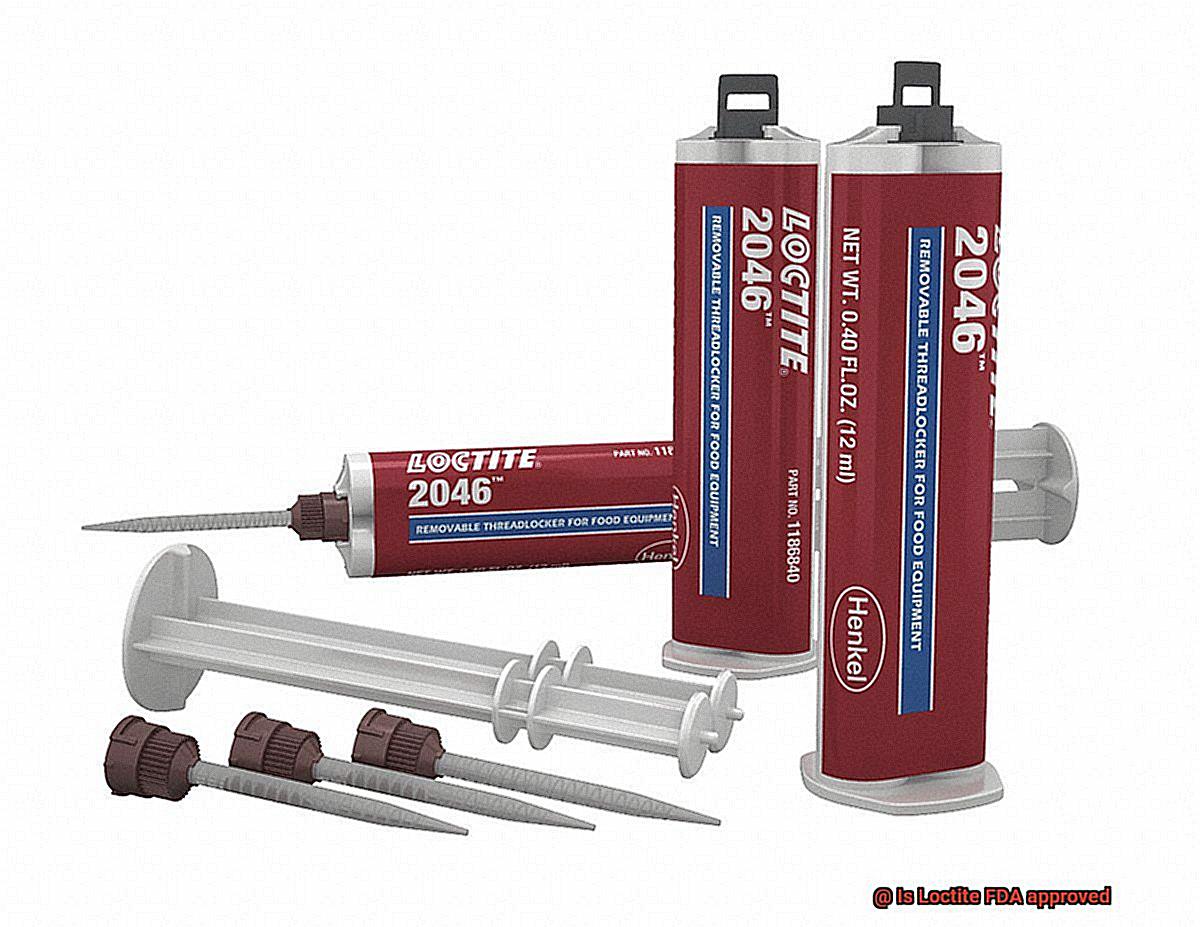
Key Features and Benefits:
One standout feature of Loctite adhesives is their ability to cure in the absence of air. This unique property allows them to fill gaps effectively, creating strong bonds even in challenging applications. Additionally, Loctite adhesives offer resistance to temperature extremes, chemicals, and moisture, ensuring durability in demanding environments.
Is Loctite FDA Approved?
While the U.S. Food and Drug Administration (FDA) does not specifically approve or certify adhesives, Loctite offers products specifically formulated for food-safe applications. These products may meet regulatory standards set by organizations like the FDA or NSF International. It is essential to read and follow the product instructions to ensure suitability for your specific use.
What is the FDA?
The U.S. Food and Drug Administration (FDA) is a vital regulatory agency that plays a crucial role in safeguarding public health. Established in 1906, its primary mission was to address concerns about unsafe food and drugs. However, over the years, the FDA’s responsibilities have expanded to cover a wide range of products, including glue, medical devices, cosmetics, and more. Let’s dive into what the FDA is all about and how it works.
- Regulatory Authority: The FDA operates as a regulatory agency of the United States federal government. It is responsible for ensuring the safety and effectiveness of various products that impact public health.
- Product Oversight: The FDA oversees the manufacturing, labeling, distribution, and marketing of products such as food, drugs, medical devices, cosmetics, and more. It sets standards and guidelines to ensure these products meet safety requirements.
- Drug Evaluation: One of the FDA’s primary roles is to evaluate and approve new drugs before they can be marketed and sold to the public. Rigorous research and clinical trials are conducted to determine the safety and efficacy of these drugs.
- Labeling and Advertising: The FDA regulates the labeling and advertising of drugs to ensure that they provide accurate information to consumers. This ensures transparency and helps individuals make informed decisions about their healthcare.
- Food Safety: The FDA establishes guidelines for food safety, ensuring that food products are properly labeled and free from contamination. It conducts inspections of food facilities and enforces compliance with regulations to maintain product quality and safety.
- Medical Devices: The FDA also regulates medical devices such as pacemakers, surgical instruments, and diagnostic tests. It ensures their safety and effectiveness through rigorous evaluation processes.
- Public Health Emergencies: The FDA plays a crucial role in monitoring and responding to public health emergencies. In cases where products pose significant risks to consumers’ health, the FDA has the authority to issue recalls or warnings.
- Inspections and Compliance: The FDA conducts inspections of manufacturing facilities to ensure compliance with regulations. This helps maintain the quality and safety of products available in the market.
Does the FDA Approve or Certify Adhesives?
When it comes to adhesives, many people wonder if the Food and Drug Administration (FDA) is involved in approving or certifying these sticky substances. The answer is a bit nuanced, so let’s explore the details.
First and foremost, it’s important to understand that the FDA’s primary focus is on products that directly impact public health, such as drugs, medical devices, cosmetics, and food. Adhesives, on the other hand, fall under the category of industrial chemicals. As a result, they are primarily regulated by other government agencies like the Environmental Protection Agency (EPA) and the Occupational Safety and Health Administration (OSHA).
The EPA and OSHA have their own set of regulations and guidelines that focus on occupational safety, environmental impact, and labeling requirements for chemicals. They do not specifically approve or certify individual adhesive products like your favorite brand of super glue. Instead, these agencies ensure that adhesives meet certain standards and requirements to protect workers and the environment.
However, there are situations where certain adhesives may come under the purview of the FDA. For example, adhesives used in industries regulated by the FDA, such as food packaging or medical device manufacturing, must comply with specific regulations and standards. In these cases, the FDA’s main concern is ensuring that any adhesive used in direct contact with food or drugs does not pose a health risk.
For adhesives used in food packaging, the FDA requires compliance with their regulations for indirect food additives. These regulations include safety testing requirements and guidelines for potential migration of substances from the adhesive into food. The goal is to ensure that adhesives do not contaminate our beloved snacks or meals.
Similarly, adhesives used in medical devices must meet certain standards to ensure their biocompatibility and safety for patients. The FDA expects manufacturers of these adhesives to conduct necessary testing and provide documentation demonstrating compliance with relevant regulations.
So, while the FDA does not approve or certify adhesives like Loctite or Gorilla Glue in the same way they do drugs or medical devices, they do play a role in ensuring the safety of adhesives used in specific applications.
Their focus is on protecting public health and preventing any potential risks associated with adhesives in industries they regulate.
Are Any Loctite Products Safe for Indirect Food Contact?
Loctite, a renowned brand known for its adhesive products, offers a diverse range of options for various applications. If you work in the food industry or deal with food processing equipment, you might be wondering whether any of Loctite’s products are suitable for indirect food contact.
In this article, we will explore this topic in detail and provide you with the necessary information to make an informed decision about the safety of Loctite adhesives in relation to food contact.
Understanding Direct and Indirect Food Contact:
Before delving into Loctite’s offerings, it is crucial to understand the distinction between direct and indirect food contact. Direct contact refers to situations where the adhesive comes into direct contact with the food itself, such as in packaging or sealing applications.
On the other hand, indirect contact refers to scenarios where the adhesive is used in a manner that does not directly touch the food but may come into contact with it indirectly, such as in machinery or equipment used in food processing.
Loctite’s Compliance with FDA Regulations:
Recognizing the significance of safety in indirect food contact applications, Loctite has formulated and produced a range of products that comply with FDA regulations. These specific products have undergone rigorous testing and evaluation to ensure their safety and compatibility with food processing equipment.
Verifying Product Suitability:
While some Loctite products are safe for indirect food contact, it is essential to note that not all of their offerings fall under this category. To determine the suitability of a particular product for indirect food contact, it is crucial to check the product documentation or consult with Loctite experts.
The company provides detailed information on their website and in their product documentation regarding compliance with FDA regulations, ensuring transparency and clarity for customers.
Proper Application Procedures:
When using any adhesive product in an indirect food contact application, it is crucial to follow proper application procedures and adhere to recommended curing times. This ensures that the adhesive has fully cured and minimizes the potential migration of substances into the food.
Are There Food-Safe Loctite Products?
If you work in the food industry or enjoy DIY projects in the kitchen, you may have wondered if there are glue products that are safe to use around food. You don’t want harmful substances leaching into your delicious creations or risking the health of your customers. Luckily, there are food-safe Loctite products available.
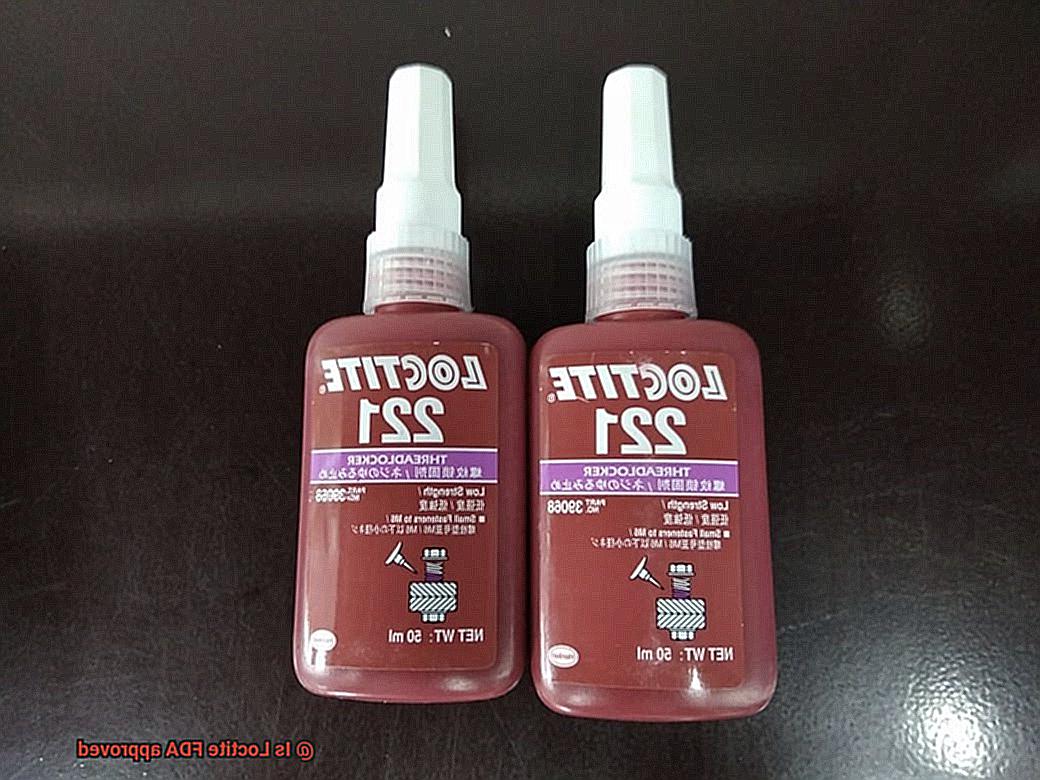
Loctite is a well-known brand for adhesives and sealants, but not all of their products are suitable for food-related applications. To ensure the safety and quality of your food items, it’s important to look for certified food-safe options.
The Food and Drug Administration (FDA) is the regulatory body that sets standards for materials and products used in food-related applications. Loctite offers a range of adhesives and sealants that have been specifically formulated and approved for use in food-safe environments.
These food-safe Loctite products have undergone rigorous testing to ensure they do not contaminate food or pose any health risks. They can be used in direct contact with food without compromising its quality or safety.
Examples of food-safe Loctite products include:
- Loctite Super Glue Ultra Gel Control: This adhesive is perfect for fixing small kitchen appliances or utensils. It has been certified as food-safe and can be used on surfaces that come into direct contact with food.
- Loctite PL Premium Fast Grab: If you need to repair countertops or cabinets in your kitchen, this adhesive is a great choice. It is FDA-approved and can be used on surfaces that may come into indirect contact with food.
- Loctite Clear Silicone Waterproof Sealant: This sealant is ideal for sealing cracks or gaps in sinks, faucets, or other fixtures in your kitchen. It is certified as food-safe and can be used in areas where it may come into direct contact with food.
When using any food-safe Loctite product, it’s important to follow the manufacturer’s instructions and allow sufficient curing time before coming into contact with food. This ensures the adhesive or sealant has fully cured and does not release any harmful substances.
What are the Regulations for Materials that Come into Direct Contact with Food?
Regulations for materials that come into direct contact with food are crucial for ensuring the safety and quality of the products we consume. The United States Food and Drug Administration (FDA) is the authority responsible for establishing these regulations and standards. Under their comprehensive framework, the Code of Federal Regulations (CFR) Title 21, they address the requirements for materials in direct contact with food, including adhesives, coatings, and other substances used during processing, packaging, or storage.
The key regulation under CFR Title 21 is that food-contact substances (FCS) must be safe and suitable for their intended use. This means that any material used in direct contact with food must not pose a risk of contamination or adulteration. Manufacturers have the responsibility of ensuring that their products comply with these safety standards.
To determine if a specific material like Loctite adhesive is FDA approved for food contact, it is important to consider its intended use and composition. The FDA maintains the Generally Recognized as Safe (GRAS) list, which includes approved substances. However, not all substances are individually listed on the GRAS list; some may fall under broader categories or be evaluated based on their components.
For adhesives like Loctite, it is crucial to verify if they contain any ingredients recognized as potentially harmful to human health or have restrictions on their use in food-contact applications. This information can typically be found in the Material Safety Data Sheet (MSDS), which provides details on the composition and potential hazards of a product.
In addition to the FDA’s regulations, other organizations such as the European Food Safety Authority (EFSA) and the International Organization for Standardization (ISO) also have guidelines and standards for materials in contact with food. These international standards often complement FDA regulations and contribute to global harmonization of food safety practices.
How to Choose an Adhesive Product for a Food-Related Application?
Selecting the right adhesive product for a food-related application is crucial to ensure the safety and quality of your products. With various factors to consider, it can be challenging to navigate the options available. In this article, we will explore five key factors that will help you make an informed decision when selecting an adhesive for your food-related application.
FDA Approval: Ensuring Safety First
When choosing an adhesive for a food-related application, it is essential to look for FDA-approved products specifically labeled for food contact. The FDA regulates materials that come into contact with food to ensure they are safe. By selecting an adhesive that is FDA approved, you can have peace of mind knowing that it has undergone rigorous testing and meets safety standards.
Food-Grade Certification: Going Beyond FDA Approval
In addition to FDA approval, some adhesive manufacturers obtain certifications such as ISO 22000 or HACCP. These certifications indicate that the adhesive has met specific food safety standards and undergone thorough testing. Choosing an adhesive with food-grade certification further ensures its suitability for use in food-related applications.
Compatibility with Different Food Types: A Perfect Match
Consider the specific type of food that will come into contact with the adhesive. Some adhesives may be suitable for dry foods, while others are better suited for moist or oily foods. It is essential to choose an adhesive that is compatible with your specific food type to avoid any potential reactions or contamination.
Temperature and Chemical Resistance: Withstanding Harsh Conditions
Food-related applications often involve exposure to various temperatures and chemicals. Ensure that the adhesive can withstand these conditions without compromising performance or releasing harmful substances. Look for adhesives that offer temperature resistance and chemical durability.
Ease of Application: Efficiency Matters
Consider the application method for the adhesive. Some adhesives require heat curing or mixing, while others come in ready-to-use forms like tapes or pre-applied coatings. Choosing an adhesive that aligns with your application requirements ensures ease of use and efficiency in your food-related processes.
Industry-Specific Requirements for Adhesives Used in Processes
Step into the world of adhesives, where the right bond can mean the difference between triumph and failure for a product. Whether you find yourself in the realms of food and beverage, medical, automotive, aerospace, electronics, construction, or textiles, understanding the unique demands and regulations that govern adhesive selection is paramount.
Embark on this journey with us as we delve into the industry-specific requirements that shape the adhesive landscape in different processes.
Food and Beverage Industry:
- FDA Approval: Adhesives used in food applications must satisfy stringent guidelines set by the Food and Drug Administration (FDA) to ensure they do not contaminate or compromise the safety of food.
- Food-Grade Certification: Seek adhesives certified by organizations like NSF International or the International Organization for Standardization (ISO) to guarantee their suitability for food contact.
Medical Industry:
- Regulatory Compliance: Adhesives employed in medical applications must adhere to strict standards mandated by regulatory bodies such as the FDA or European Medicines Agency (EMA), ensuring biocompatibility and sterility.
- Rigorous Testing: Thorough biocompatibility testing is crucial to safeguard patient well-being and prevent any adverse reactions.
Automotive Industry:
- Performance Criteria: Adhesives utilized in automotive manufacturing must withstand high temperatures, harsh chemicals, and provide exceptional durability for structural integrity.
- Industry Standards: Adhesives may need to meet specifications set by the International Automotive Task Force (IATF) or Original Equipment Manufacturers (OEMs) to ensure consistency across production lines.
Aerospace and Defense Industries:
- Structural Integrity: Adhesives employed in aircraft assembly must meet rigorous performance standards to endure extreme environmental conditions.
- Compliance with NAS Standards: Adhering to National Aerospace Standards (NAS) ensures that adhesives used in aerospace applications are reliable and meet stringent safety requirements.
Other Industries:
- Electronics: Adhesives must possess excellent electrical insulation properties and compatibility with delicate electronic components.
- Construction: Adhesive products used in construction applications necessitate weather resistance, durability, and formidable bonding strength.
- Textiles: Adhesives employed in textiles require flexibility, washability, and resistance to chemicals or high temperatures.
iylMno-LLjc” >
Conclusion
Loctite, a well-known brand in the adhesive industry, is often used in various applications. However, when it comes to FDA approval, there seems to be some confusion. The Food and Drug Administration (FDA) is responsible for ensuring the safety and effectiveness of products that come into contact with food or drugs. While Loctite offers a range of products that are specifically designed for use in food processing and pharmaceutical industries, not all of their adhesives have received FDA approval.
It’s important to note that FDA approval is not required for every type of adhesive. The FDA classifies adhesives as indirect food additives, meaning they are not intended to be consumed but may come into contact with food during processing or packaging. In these cases, the FDA requires manufacturers to comply with specific regulations regarding the materials used and their potential impact on food safety.
Loctite has developed adhesives that meet these regulatory requirements and are deemed safe for use in food processing and pharmaceutical industries. These specialized formulations are often labeled as “food grade” or “pharmaceutical grade” to indicate their compliance with industry standards.
However, it’s crucial to differentiate between Loctite’s specialized products and their general-purpose adhesives. Not all Loctite adhesives have undergone the rigorous testing and evaluation required for FDA approval. Therefore, if you’re looking for an adhesive specifically approved by the FDA for direct contact with food or drugs, it’s essential to choose one from Loctite’s range of specialized products.
In conclusion, while Loctite offers adhesives suitable for use in food processing and pharmaceutical industries, not all of their products have received FDA approval.

